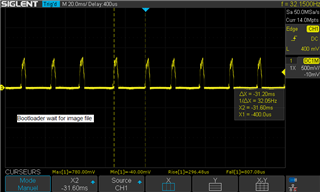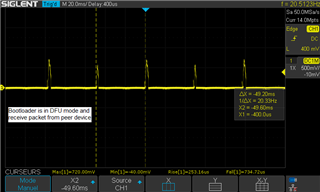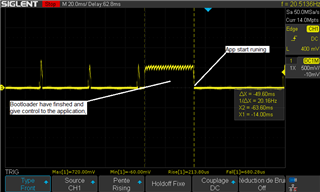Hello,
I'm using this example of code (nRF5_SDK_11.0.0_89a8197\examples\dfu\bootloader\pca10040\dual_bank_ble_s132\arm5_no_packs) with my custom board to perform a dfu. So in this it"s seems to support use of button but in my case there is no button on board so i disabled the below code:
//dfu_start |= ((nrf_gpio_pin_read(BOOTLOADER_BUTTON) == 0) ? true: false);
and all related function thats use BOOTLOADER_BUTTON.
1. is the desactivation of the button code can run the app as if there was no button on board or there is another trick to enter the DFUmode without using the button. ?
2. I have another issue ; i have downloaded an hex file over the air, the DFU work well , and bootloader give control to the application but stop advertinsing.as "DfuTrgt" si i can't perform another dfu . Do you have any idea where and how to change code in order to perform dfu again even if application ?
Best regards





